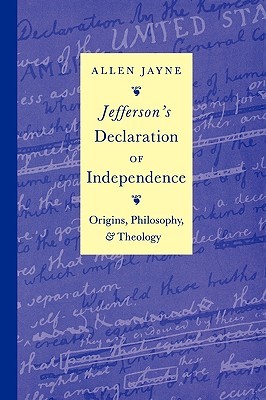
- We will send in 10–14 business days.
- Author: Allen Jayne
- Publisher: University Press of Kentucky
- ISBN-10: 0813190037
- ISBN-13: 9780813190037
- Format: 15.2 x 22.9 x 1.6 cm, softcover
- Language: English
- SAVE -10% with code: EXTRA
Reviews
Description
Allen Jayne analyzes the ideology of the Declaration of Independence -- and its implications -- by going back to the sources of Jefferson's ideas: Bolingbroke, Kames, Reid, and Locke. He concludes that the Declaration must be read as an attack on two claims of absolute authority: that of government over its subjects and of religion over the minds of men. Today's world is more secular than Jefferson's, and the importance of philosophical theology in eighteenth-century critical thought must be recognized in order to understand fully and completely the Declaration's implications. Jayne addresses this need by putting religion back into the discussion.
EXTRA 10 % discount with code: EXTRA
The promotion ends in 19d.00:14:06
The discount code is valid when purchasing from 10 €. Discounts do not stack.
- Author: Allen Jayne
- Publisher: University Press of Kentucky
- ISBN-10: 0813190037
- ISBN-13: 9780813190037
- Format: 15.2 x 22.9 x 1.6 cm, softcover
- Language: English English
Allen Jayne analyzes the ideology of the Declaration of Independence -- and its implications -- by going back to the sources of Jefferson's ideas: Bolingbroke, Kames, Reid, and Locke. He concludes that the Declaration must be read as an attack on two claims of absolute authority: that of government over its subjects and of religion over the minds of men. Today's world is more secular than Jefferson's, and the importance of philosophical theology in eighteenth-century critical thought must be recognized in order to understand fully and completely the Declaration's implications. Jayne addresses this need by putting religion back into the discussion.


Reviews